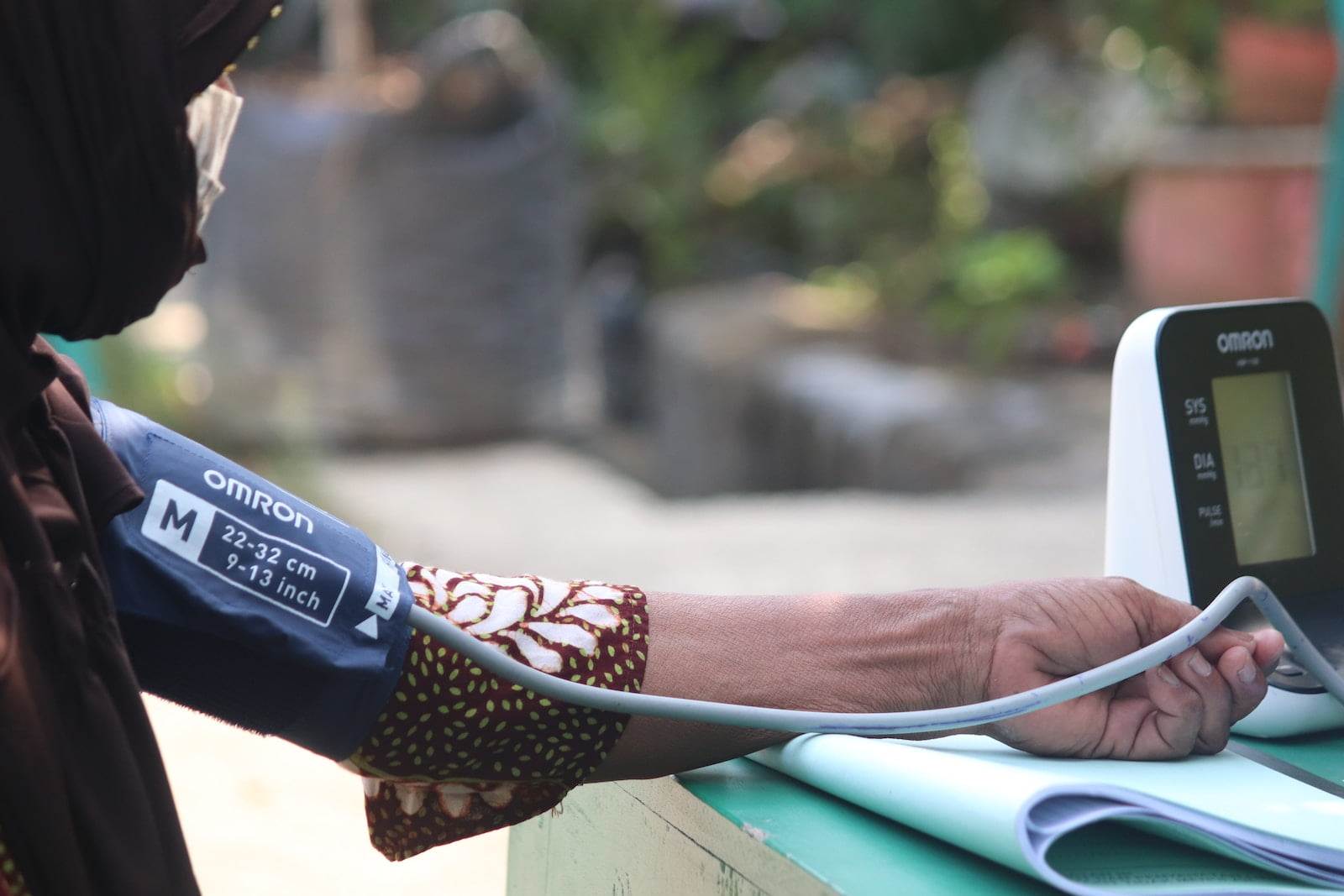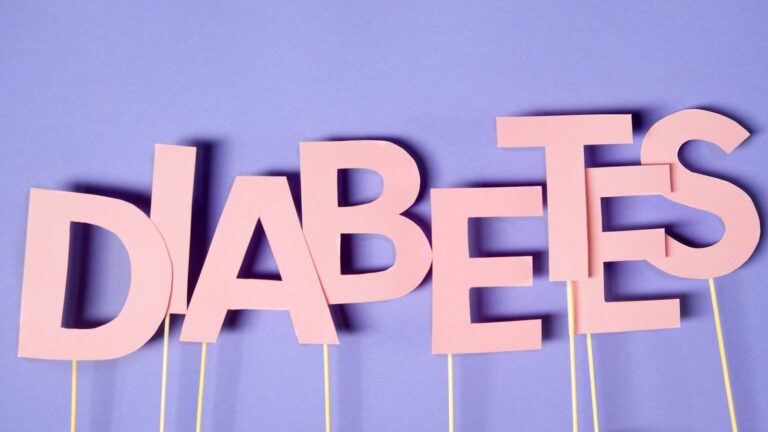High blood pressure, also known as hypertension, affects millions worldwide. Diet, lifestyle, and genetics increase this disease’s risk. Avoiding and controlling hypertension requires knowing its causes. This article discusses the most common causes of high blood pressure and how to prevent it.
First, examine your diet. Salt increases blood pressure. Saturated fat raises cholesterol and blood pressure. Hypertension may increase if your diet lacks colorful fruits and vegetables.
Finally, lifestyle choices like heavy drinking and smoking can cause hypertension. To understand the causes of high blood pressure, consider all of these.
Table of Contents
Definition of High Blood Pressure
High blood pressure, also known as hypertension, is a medical condition where the force of your blood against the walls of your arteries is too high. Diet, exercise, and genetics affect its growth. Cardiovascular disease and stroke are risks.
Primary and secondary hypertension exist. Primary hypertension is untreatable and worsens with time. Secondary hypertension is caused by another health condition, like the kidneys or thyroid.
Untreated hypertension raises cardiovascular disease and stroke risk. If you have high blood pressure, notify your doctor about any symptoms so they can uncover the cause and assist you.
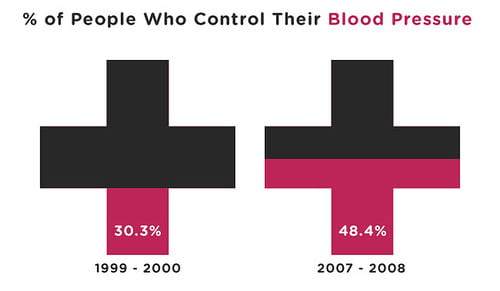
The Causes of High Blood Pressure Risk Factors
High blood pressure risks are many. The First one is age. High blood pressure grows with age. Being overweight or obese, having a family history of hypertension, eating too much salt, being inactive, and consuming too much alcohol are further factors.
Having certain genes may increase the likelihood that someone will develop hypertension. Kidney illness increases hypertension risk.
Finally, certain drugs raise blood pressure. These include birth control pills, steroids and some over-the-counter pain relievers. If you’re worried about your blood pressure while taking medication, talk to your doctor.
Understanding the causes of high blood pressure can help people lower their blood pressure.
Age and Gender
Age and gender can be the causes of high blood pressure. As the body loses elasticity with age, older people tend to have higher blood pressure. Before menopause, women have lower blood pressure than men.
Some races seem to be more prone to high blood pressure. Due to genetic, social, and environmental factors, African Americans and Hispanics have higher blood pressure than Caucasians and Asians. Disparities in healthcare, diet, lifestyle, and other factors may contribute.
High blood pressure risk should also include other medical conditions. As a side effect of diabetes and obesity, hypertension is more likely in these patients. Consult a doctor before taking any cardiovascular action.
It’s important for people of all ages and genders to know their risk factors for high blood pressure and take preventative measures.
Genetics
High blood pressure can be genetic. Researchers have found many genes connected to the illness, but they cannot predict who will get it. Lifestyle and genetics can be the causes of high blood pressure.
Certain AGT gene variants are linked to high blood pressure. Angiotensinogen regulates blood pressure and fluid balance. ACE, ADRB2, and FGF5 also can be the causes of high blood pressure. Each gene regulates blood pressure by affecting hormones or nerve impulses.
Diet and exercise increase hypertension risk. This illness is more common in inactive, unhealthy people. Stress increases heart rate and constricts arteries, which raises blood pressure. These factors collectively enhance hypertension risk.
People who have a family history of hypertension or who are at risk for it should live a healthy life and check their blood pressure regularly. They can monitor their symptoms and receive medical help quickly by doing so.
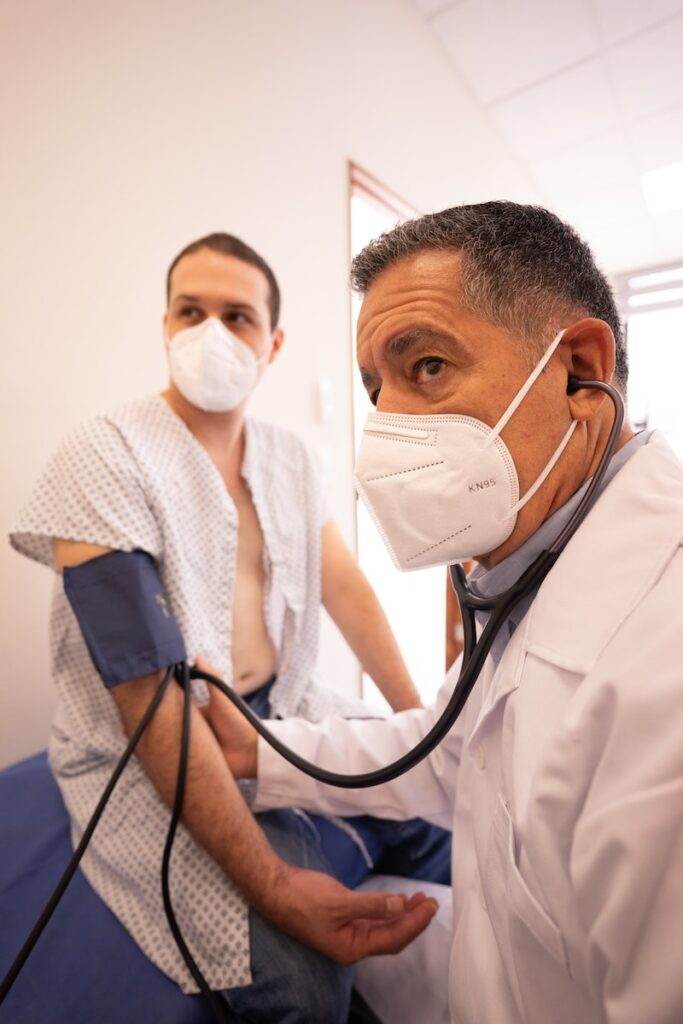
Lifestyle Habits
Lifestyle choices also can be the causes of high blood pressure. This includes food, exercise, and stress. Studies have indicated that eating too much processed food or salt might raise blood pressure. To lower hypertension-causing stress chemicals, exercise at least 30 minutes a day. Finally, stress management is essential for healthy blood pressure. Yoga, meditation, and mindfulness reduce stress.
Lifestyle habits regulate blood pressure. Considering these variables and making simple changes to a healthy lifestyle may reduce the risk of high blood pressure.
Medication Side Effects
Medication side effects and diet can also be causes of high blood pressure. Some medications may raise blood pressure. Steroids, NSAIDs, and birth control can affect blood pressure.
Discussing medication risks with doctors is crucial. If a medication causes unusual blood pressure changes or fatigue, patients should notify their doctor. The doctor may need to change medications or dosages.
Vitamin B12 and ginseng can raise blood pressure when taken with medications. These precautions will keep your health in check.
Diseases and Conditions
Medicines and supplements can also raise blood pressure. Diabetes frequently can be the causes of high blood pressure. Diabetes raises the risk of stroke and heart disease, which raise blood pressure. Diabetes also impairs blood pressure regulation.
Obesity increases blood pressure. Obesity strains the body and makes it work harder to maintain normal functions. This raises blood pressure by increasing stress hormones. Hypertension complications can be prevented with early detection and treatment.
Hormonal Imbalance
Cortisol, insulin and aldosterone regulate blood pressure. Hypertension can result from hormone imbalances. Insulin and aldosterone imbalances also affect blood pressure.
Low thyroid hormone levels may increase blood pressure. Insufficient hormone production can be the causes of high blood pressure. The heart slows, raising blood pressure. Birth control pills and steroids can also alter hormones and raise blood pressure.
Genetics and lifestyle can also be the causes of high blood pressure.
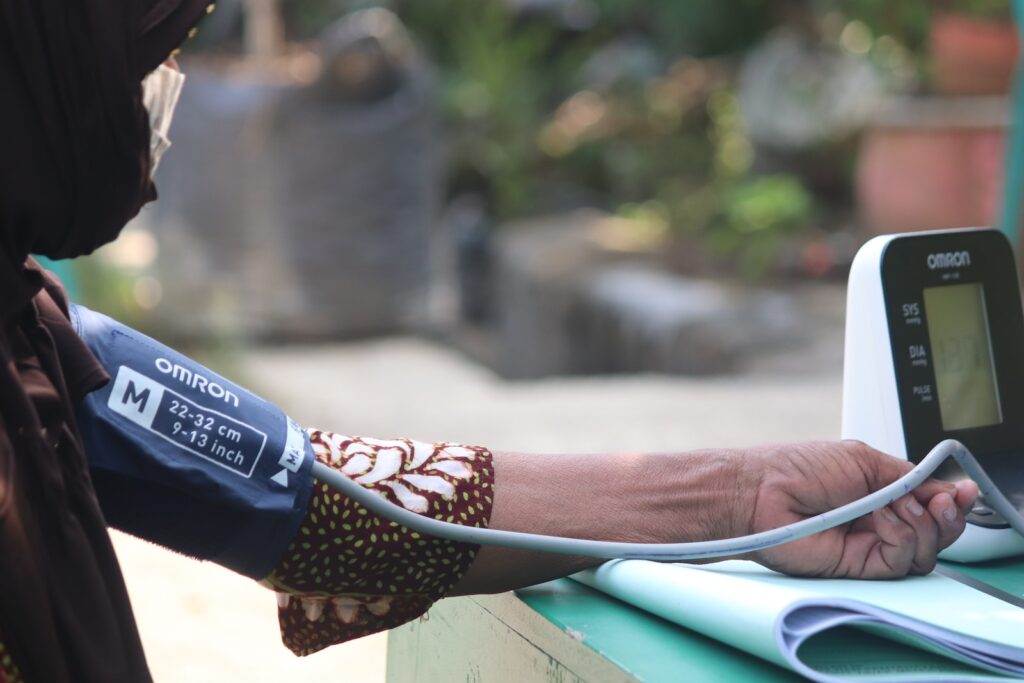
Diagnosis and Treatment
Once a patient is suspected of having high blood pressure, they are typically referred to a doctor for further diagnosis and treatment. To diagnose hypertension, the doctor will take a medical history and run blood tests.
Treatment for high blood pressure includes lifestyle changes, like exercising regularly and eating healthy foods, as well as taking medications prescribed by your doctor. Depending on the severity of the condition, they may also recommend treatments like angiotensin-converting enzyme inhibitors or diuretics. In some cases, surgery may be necessary to repair damaged arteries or remove blockages that can lead to hypertension.
Untreated hypertension can cause serious health issues. It’s crucial to follow your doctor’s advice and lower your blood pressure.
Diet and Nutrition
Food controls blood pressure. Sodium, saturated fat, and cholesterol can be causes of high blood pressure. Fruits, vegetables, and other low-sodium diets lower it. Thus, maintaining healthy blood pressure requires eating well.
Fruits and vegetables can lower blood pressure. Low-calorie fruits and vegetables include vitamins and minerals that reduce blood pressure. Potassium, an essential mineral, regulates fluid balance and lowers blood pressure. Bananas, avocados, potatoes, sweet potatoes, spinach, squash, beans, and legumes are potassium-rich.
Limiting sodium and eating fruits and vegetables can manage blood pressure. Hypertension might result from salt retention. Avoid processed foods and cook with herbs or spices to reduce sodium intake.
These dietary suggestions can help you manage your blood pressure without medication. Small modifications like eating more fruits and vegetables or lowering sodium can help maintain healthy blood pressure over time.
Conclusion
High blood pressure can have serious, long-term effects on our bodies. Regular blood pressure checks can detect early problems and ensure you’re doing everything you can to control it. Increased exercise and healthier eating can naturally lower blood pressure and reduce the risk of other health issues. Lifestyle changes and medical help can manage hypertension, which cannot be cured. To live long and healthy lives, we must take responsibility for our health.
FAQs
Q. What Are The Long-Term Effects Of High Blood Pressure?
High blood pressure causes stroke, heart failure, and kidney disease. Hypertension has long-term effects and can be prevented and treated. Short-term high blood pressure increases cardiovascular risk. Hypertension damages artery walls, causing atherosclerosis. This restricts blood flow, increasing the risks of stroke, aneurysm rupture, and heart attack risks. Arterial plaque from hypertension-induced high cholesterol increases cardiovascular risk. Hypertension affects more than your heart. Long-term damage to the kidneys and eyes. Hypertension can cause diabetic retinopathy, glaucoma, and chronic kidney disease. (damage progression). Low-sodium, low-fat diets maintain blood pressure. Exercise maintains weight and heart health. Reduce alcohol and smoking to lower hypertension risk. Uncontrolled high blood pressure is harmful. Healthy living prevents or lowers hypertension.
Q. Is There A Way To Naturally Lower Blood Pressure?
Hypertension is common. It can cause kidney, heart, stroke, and vision damage. Prescribed medications help. Simple lifestyle changes can lower blood pressure. These include eating healthy with lots of fruits and vegetables, exercising, reducing sodium, not smoking or drinking, and managing stress. Onions and garlic lower hypertension. Consult your doctor before making major lifestyle or diet changes. Your doctor may recommend checkups or additional treatments. These measures can keep you healthy. Small changes can lower blood pressure without medication. Medical and family support can lower high blood pressure naturally.
Q. How Often Should I Get My Blood Pressure Checked?
Monitoring blood pressure is necessary for health. Discuss lifestyle changes with your doctor. They can recommend a monitoring schedule. Your health and risk factors may require weekly or monthly visits. Home monitoring systems make it easy to record readings between visits. These simple devices let you track results 24/7. To stay healthy and detect issues early, get tested regularly, regardless of your choice.
Q. Can High Blood Pressure Cause Other Health Problems?
Uncontrolled high blood pressure can cause other health issues. Hypertension can damage blood vessels and organs, causing problems like:
1. Heart disease: hypertension narrows and hardens arteries, making it harder for the heart to pump blood. Heart attacks and failure can result.
2. Stroke: hypertension damages brain blood vessels, causing strokes.
3. Kidney disease: hypertension damages kidney blood vessels, impairing waste removal. This can cause kidney failure.
4. Vision loss: hypertension damages the eye blood vessels, causing vision problems or loss.u003cbru003e5. Sexual dysfunction: hypertension affects genital blood flow, causing sexual dysfunction in men and women.
These are some high blood pressure-related health issues. Monitoring and controlling blood pressure prevents such complications.
Q. Is There A Cure For Hypertension?
Many people worldwide have hypertension. High blood pressure can result from artery wall pressure. Lifestyle changes and medications can control hypertension, which has no cure.Lifestyle changes lower blood pressure. Exercise lowers blood pressure. Avoiding tobacco and alcohol reduces hypertension risk. Medication lowers blood pressure. Doctors prescribe diuretics or ACE inhibitors to lower blood pressure by reducing sodium and water. Take these medications regularly to stay healthy. Talk to your doctor about treating hypertension. Lifestyle and medication can maintain healthy levels.
